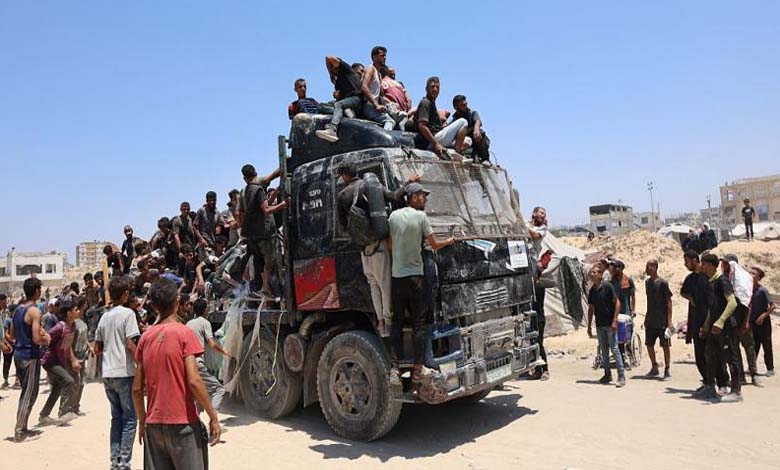The Kissufim Truck Overturn: Death Beneath the Wheels of Hunger in Gaza

In Gaza, death is not limited to airstrikes. It creeps in from every corner, choosing its victims among the starving who await a morsel of bread, or chases them down under the wheels of a hope turned to tragedy. In a harrowing scene that reflects the ongoing humanitarian catastrophe in the besieged enclave, dozens of Palestinians were killed or injured late Tuesday into Wednesday night—not by bombs this time, but in a frantic rush for food aid seen as their last lifeline against imposed starvation.
-
“I pretended to be dead to survive”: How Gaza’s breadlines turned into graveyards
-
Israel Punishes UN over Gaza Operations: Three Visas Denied
The incident involved the overturning of a humanitarian aid truck at the Kissufim entry point, designated by the Israeli army east of Deir al-Balah, for the passage of aid deliveries. The preliminary death toll stands at approximately 30 individuals.
Mahmoud Basal, spokesperson for the Palestinian Civil Defense, told AFP that the truck overturned while hundreds of people were gathered around, awaiting distribution. He blamed Israeli forces for forcing the truck onto unsafe roads previously targeted in airstrikes and not rehabilitated for traffic.
-
Gaza Truce: U.S. Positive Signal, Israeli Flexibility and a U.N. Alarm
-
Gaza: 20 Dead in Stampede for Aid in Khan Younis
As the hunger crisis deepens, bread lines are increasingly turning into death scenes. The previous day, 68 people were reported killed—56 of them while waiting near aid distribution points, particularly in Khan Younis in the southern Gaza Strip and in the Zikim area to the north, through which some Israeli-approved aid enters.
When asked by AFP, the Israeli army stated that it fired “warning shots” toward a crowd of Gazans approaching a checkpoint near the Morag junction but claimed no knowledge of casualties.
-
Buffer zone or bargaining chip? What you need to know about Gaza’s new Magin Oz corridor
-
Gaza Truce: Israel Loosens Its Red Lines and Steps Back on Morag Corridor
Meanwhile, United Nations agencies are warning that “time is running out to deliver a comprehensive humanitarian response” in Gaza. According to a statement issued last Wednesday by the World Food Programme, more than 39% of the population now endures days without food, while over half a million people—nearly a quarter of the population—are living in “famine-like conditions.”
At the same time, Israel’s Coordination of Government Activities in the Territories (COGAT) announced Tuesday that Tel Aviv would partially permit the reentry of commercial goods into Gaza to reduce dependence on humanitarian aid. The office stated that a limited number of local traders had been approved under strict conditions and heightened security monitoring.
-
Bloody Morning in Gaza: 31 Killed in Israeli Strikes Including Women and Children
-
Gaza Ceasefire Deal: Internal and Regional Pressures Shape the Limits of the Agreement
Israel imposed a total blockade on Gaza at the beginning of March before announcing a partial easing in May. In coordination with Washington, a controversial aid distribution system was implemented through the “Gaza Humanitarian Foundation,” which drew criticism from international aid groups.
Although some convoys and air-dropped aid resumed last month, the UN maintains that the quantities of food entering Gaza remain insufficient to stave off famine. The humanitarian crisis and shortages of essential food and goods continue to escalate in the Palestinian enclave.












